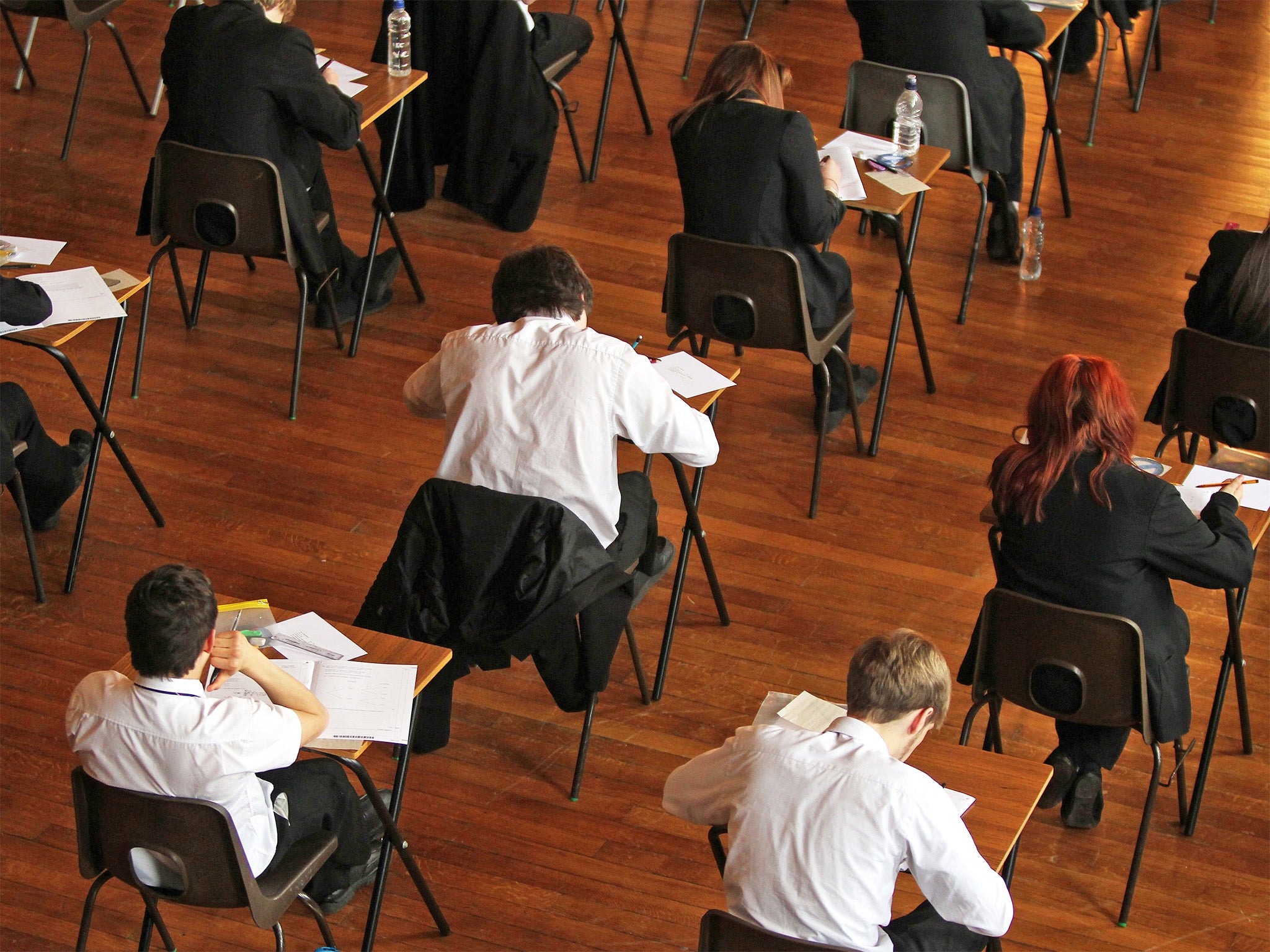When league tables claim that 0% of students at top schools are getting a good education, it's glaringly obvious that they need to be scrapped
The latest controversy over school rankings proves just how useless they are

What happened to St Paul’s Boys School? One might assume that they would have worked out roughly what they were doing.
They’ve spent 500 years educating the likes of John Milton (who apparently had some idea how to use words) and Field Marshal Montgomery (who must have learnt a thing or two about leadership) after all.
But apparently not – according to the Government’s league tables released yesterday, they and scores of other top private schools gave 0 per cent of last year’s 16-year-olds a good education. No doubt there must be queues of parents around the country demanding some of the tens of thousands of pounds they have spent in fees back.
This is, of course, absurd. The 0 per cent figure, which arises from the Government’s decision not to include the IGCSE qualification in the tables this year, is an anomaly, but it is also just the most extreme example of a broken system. This farce should be a catalyst for scrapping the tables.
Education Secretary Nicky Morgan has responded to the publication of the tables by doing what politicians tend to do – drawing the contrast between her party and their opponents. Under Labour, schools were encouraged to enter their children for whichever qualification would get them the 5 A*-C grades which make the school look good, she says. There was a culture of re-sits and taking early exams which focused on the C/D grade borderline at GCSE. All true.
But she is wrong to assert that the coalition government has “turned the exam system on its head, so that it works for children, not politicians”. Where schools had one set of incentives to put their interests ahead of those of the kids, now they have another.
Now, schools will chop and change their courses according to the whims of The Office of Qualifications and Examinations Regulation (Ofqual), rather than their own judgements about what works. The extra focus on academic subjects will mean more children are drilled through these subjects regardless of whether or not they best suit them.
So the problem lies with the existence of the tables themselves and the culture that they help create. Without them, schools would be free of the messages from on high that paper qualifications are their point of their existence, and that they're engaged in a competition against other local or similar schools.
And children would not suffer the knock-on impact. The fact that they currently have SUCCESS or FAILURE stamped on their head aged 16, based on whether they reached the arbitrary measure of 5 A*-C grades, is not the worst of it.
The obsession with getting as many students as possible over that line has led to stressful, with counter-productive tests being brought in at ever-younger ages. This is the context in which OFSTED’s Chief Inspector Sir Michael Wilshaw said with a straight face recently that some children should start formal schooling aged two.
Morgan has spoken of planning to get rid of the 5 A*-C metric and replace it with a measurement of "progress", but this will only reinforce the idea that children must always be getting better at something (never mind taking time to learn, reflect or enquire) and the pretence that schools are factories working with inanimate objects, rather than places where people grow up. There is no way of spinning these tables that puts children first.
The High Master of St Paul’s, a Professor of History and former England rugby player, probably won’t be losing much sleep over the league tables. Parents with their children’s interests at heart who go to visit his school, or others in the 0 per cent club, will see what I did when I visited – boys who are incredibly fortunate and given the very best start in life, and a body of confident teachers freed from excessive hand-wringing over how things look to outsiders - and ignore the tables.
A similar outbreak of common sense from our policymakers in the state sector would benefit all of our children.
Join our commenting forum
Join thought-provoking conversations, follow other Independent readers and see their replies
Comments
Bookmark popover
Removed from bookmarks